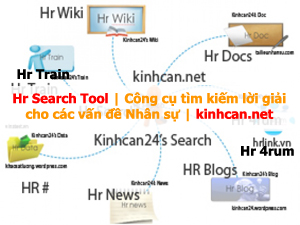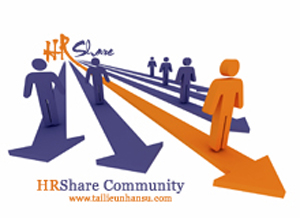Why more women should have mentors
Many successful women cite having had a mentor as the biggest influence in their career.
Sheryl Sandberg and Meg Whitman had mentors. So did Tina Fey. Why don’t you?
Many successful women cite having had a mentor as the biggest influence in their career. So, if we all know it’s important, then why don’t more of us have them and how do we get one?
Where the mentor gap begins
According to the Harvard Business Review, one of the biggest problems for women seems to be that we don’t seek out mentors the way men do, and when we do, those mentors are usually in a less senior position than the mentors men choose.
The other factor is time. As women, we typically have the added burden of doing the majority of the work-life balancing. As a result, women who obtain powerful positions in their careers and have families often have less time to offer formal mentoring to others, even if they have benefited from it themselves.
Women are projected to make up 51 percent of the workforce by 2018. To ensure that we grow to our full potential, finding a mentor needs to become a priority.
While bluntly asking someone to be your mentor can be effective, mentorship usually happens when your good work gets the attention of your boss or someone in a higher position sees you as a younger version of themselves, inspiring her to take you under her wing.
When you’re in the spotlight for a job well done, take a moment to speak to your supervisor, the CEO or someone else you feel will be able to best guide you. Discuss your work, where you see yourself going and ask for advice on how to get there. You can ask for monthly touch-base meetings or whatever your soon-to-be-mentor’s schedule will allow.
In essence, you’re asking without asking, and hopefully the relationship grows and evolves organically.
The rules of finding a mentor
We all have friends whose career trajectories we admire and simultaneously think to ourselves, how did they get to where they are? Naturally a lot of hard work was involved but if you actually dig, you may find that one or more mentors were involved along the way. In my life, that friend is Kristen Ferraro. I’ve watched her career progress from administrative roles to her current position asGlobal Manager, Customer Engagement and CRM Strategy for Cigna.When I told her about this article, she was more than happy to share how mentors positively impacted her professional development and helped her take her career to the next level.
1. Start early
At the onset of our careers, we’re still learning the ropes and aren’t as confident. It’s hard not to take things personally when interactions at the office are less-than-friendly. Ferraro was fortunate to find a mentor early in her professional career to teach her these lessons and serve as a touchstone whenever needed. Her second office job was at Edge Trade (eventually acquired by Knight Capital Group), and then-CFO Norman Schwartz saw that Ferraro sometimes struggled with the more difficult personalities in the office. He took her aside and gave her the best professional advice anyone has ever given her: “Don’t take things personally.” What this advice did was help her take a step back and see the bigger picture and to figure out what she could and couldn’t control. “You’re not here to make friends,” he said. “You’re here to do a job. Stay focused on the work and the goals of the company.”
2. Have support outside of the workplace
Ferraro’s father, Ralph, is an educator and always encouraged her to face any challenge head on. Whenever she’d complain about work-related issues, he’d push her to address them and advise that working to overcome the issues would make her a better professional and a better person. Ralph is living proof that there is no challenge you should back down from. When faced with the devastating news that he had cancer and was given six months to live, he fought for his life. Today Ralph stands as a medical miracle, cancer free, and a constant inspiration to his daughter to tackle any challenge, no matter how big.
3. You never outgrow mentorships
The need for a mentor later in your career is just as critical as having one at the start. As competition for higher-level positions becomes fiercer, having someone that can help catapult your career to the next level is imperative. Once again, Ferraro found that person when applying for her current job. Ferraro and her interviewer Michele Paige instantly hit it off during the interview process, and she was offered the job. From day one, Paige shared her desire to help Ferraro develop. She advised her to take a skills assessment test so they could identify areas of strength and align them with her work and projects. Then they’d identify areas for improvement and work on developing them.
Mentoring takes time and dedication, but it is a valued relationship for both parties involved and can offer just as much to the mentor as it does the mentee: A fresh perspective on the work at hand, the opportunity to keep your skills sharp and a personal sense of reward from seeing the positive effects your actions have had on someone else. Indeed, Ferraro herself is currently mentoring interns within her organization and states, “It’s a great way to remind myself of the valuable lessons I've learned along my own journey."
(Picture Source: Internet)
HRVietnam - Collected
Lying in the hiring process: What Human resources needs to know
People lie all the time during the hiring process. It’s up to Human Resources and hiring managers to catch those liars. Where are those fibs being told — and how can you prevent them?

Resume lies
In this intense job market, it’s no surprise that many applicants exaggerate parts of their resumes to look more enticing to potential employers.
The concept is so widespread, however, that nearly half of all applicants admit to lying on their resumes.
That’s according to a 2009 study from ADP, which found that 46% of all applicants commit some form of resume fraud.
Where are those lies being concentrated? Here are the 10 most common lies on resumes, courtesy of Marquet International:
- Stretching work dates
- Inflating past accomplishments and skills
- Enhancing job titles and responsibilities
- Exaggerating educational background
- Inventing periods of “self-employment” to cover up unemployment
- Omitting past employment
- Faking credentials
- Falsifying reasons for leaving prior employment
- Providing false references, and
- Misrepresenting a military record.
Interviewing lies
Your job would be a lot easier if you could easily spot those resume lies and nix those candidates from consideration.
But no matter how clued in you are to what applicants fib about, you’ll still inadvertently bring many of them in for interviews.
That’s when your skills at judging character come in. So who’s the best at screening potential talent? Is it someone who’s skeptical and suspicious about most applicants, or a person who’s trusting?
If you guessed that skeptical managers would do a better job, you’re not alone. You’re also wrong.
That’s according to a recent study from psychologists Nancy Carter and Mark Weber, which was recently highlighted in The Washington Post.
A large majority (85%) of participants said a skeptical interviewer would do a better job spotting dishonesty in job interviews.
But a subsequent study found that people who trust others — or who assume the best in other people — are the best at identifying liars.
How’s this so? On human resources expert explains:
… Lie-detection skills cause people to become more trusting. If you’re good at spotting lies, you need to worry less about being deceived by others, because you can often catch them in the act.
Another possibility: People who trust others become better at reading other people because they get to see a range of emotions during their interactions. That gives them more experiences to draw from to tell when someone is lying and when someone is telling the truth.
Human resources leaves employers with some advice on who they should have in the interviewer role to prevent applicants from duping you into hiring them:
Human resources expert - we need leaders who demonstrate skill in recognizing dishonesty. Instead of delegating these judgments to skeptics, it could be wiser to hand over the hiring interviews to those in your organization who tend to see the best in others. It’s the Samaritans who can smoke out the charlatans.
Of course, faith in others can go too far. It’s important to sprinkle a few ounces of skepticism into each pound of trust. Ultimately, while the best leaders don’t trust all of the people all of the time, the keenest judges of character may be the leaders who trust most of the people most of the time.
Source:http://www.Hrmorning.Com/










0 comments:
Post a Comment